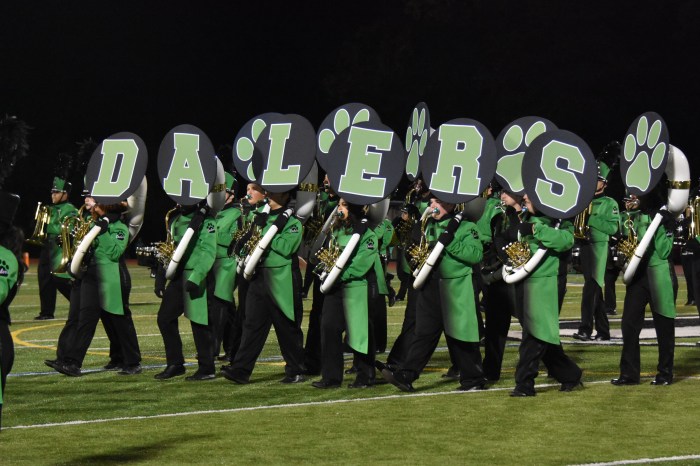On Aug. 19, the manned ticket window of the Long Island Rail Road’s Farmingdale branch was officially closed, forcing residents to use the two ticket kiosks outside of the waiting area. The Farmingdale location was among 20 closed across Long Island, including nearby Bethpage. The LIRR said it had to close the ticket offices – the least used of the system’s 50 open offices – to cut costs and save more than $2 million by the end of the year.
The additional 19 ticket office closings have taken place at the following stations: Bethpage, Broadway, Cedarhurst, Douglaston, East New York, Floral Park, Forest Hills, Hewlett, Kew Gardens, Lindenhurst, Little Neck, Massapequa Park, New Hyde Park, Northport, Nostrand Avenue, Oceanside, Rosedale, Seaford and Woodmere.
“With the declining economy the MTA identified a series of cost-saving measures last year in an effort to minimize the size of a potential fare increase and keep the budget balanced,” says a spokesperson for the LIRR. “While the State ultimately identified new funding sources to preserve existing train service, the package did not provide for the restoration of all of the expense reductions, including the closing of some of the LIRR’s least utilized ticket windows. The LIRR remains committed to providing a high level of customer service and is confident that riders will make ample use of its easy-to-use ticket machines, which are available 24-hours a day at these stations. Customers can also take advantage of the LIRR’s popular Mail & Ride program for monthly tickets, and Internet-based discounted WebTicket.”
The Farmingdale station was selected based on 2007 window ticket sales, says the LIRR. The 20 stations where ticket windows were closed had the least-utilized ticket windows in the system in 2007. The cuts were part of the LIRR 2009 budget, approved by the MTA Board of Directors in 2008 and based on 2007 ticket sales, the last year available at the time. In 2007, the Farmingdale Station – with ticket office sales of 28,848 – ranked 19th lowest.
According to the LIRR, most LIRR customers who purchase tickets at a station do so using the kiosk ticket vending machines, which were first introduced in 1983. Approximately 70 percent of LIRR tickets sold are purchased through ticket vending machines. Station waiting rooms will continue to remain open with their regular hours, says a LIRR spokesperson, and train service will not be affected. Cleaning schedules for the stations will not be changed and restrooms will be available for customer use during the same time periods currently in effect. The Farmingdale train station waiting room will continue to be open Monday through Friday, 6 a.m. to 2 p.m.
Critics contend that the two kiosks in Farmingdale are not a solution. The kiosks, which take credit cards as well as cash, have a tendency to “freeze up” during the winter months since both are situated outside the waiting room, according to a LIRR conductor who was waiting at the Farmingdale train station one afternoon. If the kiosks are broken or vandalized, commuters need to purchase their tickets onboard the train with cash and be charged a mandatory step-up fee, which can be refunded only if the commuter sends the ticket to the LIRR headquarters in Jamaica and explains the situation.
Currently, fares from Farmingdale to Penn Station are $7.75 off-peak, which rises to $14 if a ticket is bought onboard; $10.75 peak, which rises to $17 if the ticket is purchased on board.
According to LIRR Assistant Director of Media Relations Salvatore Arena, there are no plans or funding to purchase any additional ticket machines, nor are there any plans to move a machine inside the waiting room. The ticket machines are outside the building so that they are available 24 hours a day. He says that LIRR ticket machines have a very high reliability rate and almost all stations have two machines. “The machines are monitored in real time at our servicing headquarters. In the unusual event that both ticket machines are out of service, the customer should purchase a ticket on the train, paying the higher, buy-on-board fare. That ticket can then be submitted to the LIRR for a refund of the extra charge by following the directions on the ticket. Customers should also know that LIRR ticket machines can operate in limited service mode. For example, if there is a coin jam or a currency jam, the machine has the ability to continue to sell tickets by credit or debit card only, until the jam is corrected,” Arena said.
The closing of the ticket window took many commuters by surprise since the exact list of which towns would be affected was never published. “In the so-called Doomsday Budget, closures to manned ticket windows on Long Island were mentioned but not to specific stations,” says Bill Henderson, executive director of the Long Island Rail Road Commuter Council. “The budget said that the 20 stations with the lowest ridership would have their manned ticket window eliminated but did not name specific stations.”
Henderson says that the closures will not be reversed any time soon. “According to the LIRR’s own financial data, the elimination of the manned ticket windows at these 20 stations, including Farmingdale, is part of their financial savings for the next four years. There is nothing that indicates that they will restore them,” he stated.
But Farmingdale Mayor Butch Starkie defended the LIRR closing in Farmingdale. “The railroad let us know that they were going to close down the ticket window when they were here for the U.S. Open golf tournament in June,” said Starkie. “They [LIRR] told us the sale of tickets and the revenue stream was not enough to keep a person manning the window. The majority of people who use our station are annual commuters who work in the city. The only people who will be affected are day-trippers.”
According to its most recent polling of ticket buying usage at its stations, in 2007 the Farmingdale ticket window sold 28,848 and 141,667 tickets sold through the vending machines. In comparison, the Bethpage ticket window sold 16,907 and 79,458 tickets sold through the vending machines.
During the first week after the ticket window closure, two residents called Starkie. One person asked about the eight parking spaces reserved for LIRR personnel; since there would be no one from the station needing those spots, the person wanted to know if they could be freed up for people on the parking spot waiting list. The other person who spoke to Starkie was a day-tripper who suggested that the town begin to offer day passes to people who would like to park in the railroad’s lot.
“We thought that was a great suggestion,” says Starkie. “We’ve begun to offer LIRR day parking passes at $3 from Village Hall. If you come to Village Hall between 8 a.m. to 4:30 p.m., Monday through Friday, you can request a parking pass for your car. But it must be for a specific day of the week. If we begin to get too many requests, however, we might need to re-think this policy if there are too many requests and not enough spots.”
Currently, the parking spots available for day-trippers into the city are required to put $3 worth of quarters into the meters for a 12-hour period. Starkie says that most commuters know to bring a roll of quarters to the parking lot for the meters. “We’re looking into adding muni meters where you punch in your stall number and pay with a credit card,” says Starkie. “But we’re not going to spend $50,000 to add these new meters because we’re in the process of completing a total impact study and major redevelopment plan that includes the Long Island Rail Road site.”
One weekday afternoon after the manned ticket windows were closed, the only person sitting in the Farmingdale waiting room was a representative of the LIRR wearing a yellow vest who was waiting for the next westbound train. He was not able to give information about the train service; his job was to sample temperatures aboard the LIRR trains in operation. The LIRR contends that this person is not an LIRR employee but is a person contracted by the LIRR as an outside vendor to conduct In-Service HVAC Temperature Surveys. The contract, which is competitively bid, is currently held by LLOYD Staffing, Inc., which surveys and reports daily to the LIRR. The vendor employs surveyors who randomly sample temperatures of LIRR train cars in operation. The number of inspectors varies at times depending on what information is needed by the LIRR about the performance of its equipment. Currently there are three to four surveyors and a supervisor assigned to the task. The contract is for three years and calls for various rates depending on the type of service provided.
Henderson of the Long Island Rail Road Commuter Council added, “These are financial issues but it is distressing when service gets pushed out.”





























